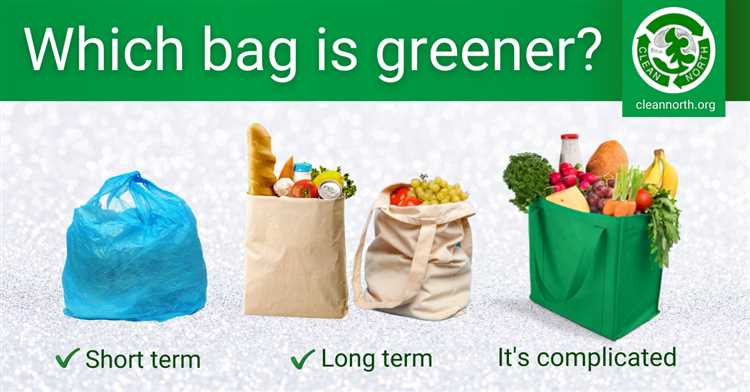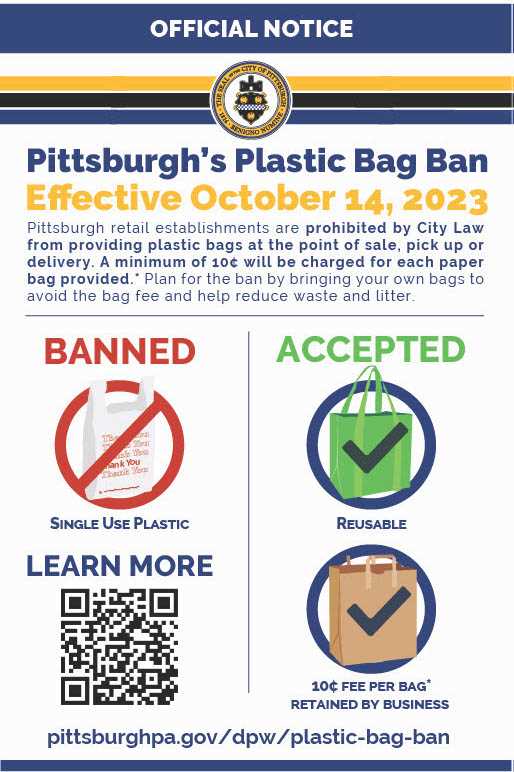In recent years, the issue of plastic pollution has gained significant attention worldwide. Plastic bags, in particular, have been identified as a major contributor to the growing litter problem. Many countries and cities have taken action by implementing plastic bag bans to address this issue and reduce the amount of plastic waste that ends up in our oceans and landfills.
Plastic bag bans prohibit the use of single-use plastic bags or impose fees on their usage, encouraging people to switch to reusable alternatives. This has proven to be an effective strategy in reducing litter and promoting sustainable living. By limiting the availability of plastic bags, people are forced to consider other options and make more conscious choices about how they transport and carry their items.
One of the key benefits of plastic bag bans is the reduction in plastic waste. Single-use plastic bags are rarely recycled and often end up as litter, polluting the environment and harming wildlife. By discouraging their use, plastic bag bans help to decrease the number of bags being produced and discarded, thereby reducing litter and the associated negative impacts.
- The Environmental Impact of Plastic Bags
- 1. Carbon Footprint
- 2. Wildlife and Marine Life
- 3. Land and Air Pollution
- Plastic Bag Bans: A Solution to Litter
- Positive Effects of Plastic Bag Bans
- 1. Reduction of litter
- 2. Wildlife protection
- Reducing Litter through Behavior Change
- 1. Education and Awareness
- 2. Providing Alternative Options
- 3. Community Engagement and Involvement
- Question-answer:
- How do plastic bag bans help reduce litter?
- What are the environmental impacts of plastic bags?
- Have plastic bag bans been successful in reducing litter?
- What are alternative options to plastic bags?
The Environmental Impact of Plastic Bags
Plastic bags have been widely used for many years due to their convenience and affordability. However, their impact on the environment is significant and has led to growing concerns in recent years.
1. Carbon Footprint
One of the main environmental issues related to plastic bags is their carbon footprint. The production of plastic bags requires the extraction and processing of fossil fuels, which contributes to greenhouse gas emissions. Additionally, plastic bags are not biodegradable and can take hundreds of years to decompose. As they break down, they release harmful microplastics into the environment, further contributing to pollution.
2. Wildlife and Marine Life
Plastic bags also have a devastating impact on wildlife and marine life. They are often mistaken for food by animals, leading to ingestion and suffocation. Birds, turtles, and marine mammals are particularly vulnerable to the dangers of plastic bags. Additionally, plastic bags can get tangled in the fins or beaks of marine animals, causing injuries or hindering their ability to swim or fly.
It is estimated that approximately 1 million birds and 100,000 marine mammals die each year due to plastic pollution, including plastic bags.
Moreover, plastic bags that end up in bodies of water can have long-lasting effects on aquatic ecosystems. They can entangle marine plants and corals, disrupt the food chain, and harm delicate marine habitats.
3. Land and Air Pollution

Plastic bags not only contribute to litter when improperly disposed of but also contribute to land and air pollution during their production and breakdown. The manufacturing process releases toxic chemicals and emissions into the air, contributing to air pollution and negative health effects for nearby communities. When plastic bags end up in landfills, they can release harmful chemicals into the soil, affecting plants and groundwater.
It is clear that the environmental impact of plastic bags is immense and requires immediate action to mitigate the damage. By implementing plastic bag bans and promoting the use of reusable alternatives, we can help reduce pollution, protect wildlife, and preserve our planet for future generations.
Plastic Bag Bans: A Solution to Litter
Litter pollution has become a pressing issue in many parts of the world, with plastic bags being one of the main culprits. These lightweight and durable bags are often discarded carelessly, leading to environmental degradation and harm to wildlife. However, governments and communities around the globe have started implementing plastic bag bans as a solution to this litter problem.
Plastic bag bans work by prohibiting or restricting the use of single-use plastic bags in various settings, such as grocery stores, retail shops, and food establishments. Instead, reusable bags made of fabric, paper, or other eco-friendly materials are encouraged as alternatives. This shift in consumer behavior has proven to be effective in reducing the litter caused by plastic bags.
One of the key benefits of plastic bag bans is their positive impact on marine environments. Plastic bags, when discarded, often end up in water bodies and oceans, where they pose a significant threat to marine life. Sea turtles, for example, mistake plastic bags for jellyfish and ingest them, leading to injury or even death. By reducing the availability of plastic bags, bans help minimize the occurrence of such tragic events and protect marine ecosystems.
Furthermore, plastic bag bans also contribute to the overall cleanliness of communities. Without access to single-use plastic bags, people are more likely to choose reusable alternatives or bring their own bags when shopping. This change in behavior leads to a decrease in litter on streets, parks, and public spaces. Clean and litter-free environments not only enhance the aesthetic appeal of a place but also promote a healthier and more sustainable living environment for residents.
While some critics argue that plastic bag bans may inconvenience consumers or businesses, it is important to recognize the long-term benefits they bring. By reducing the consumption of plastic bags, bans help conserve natural resources, minimize waste generation, and promote a circular economy. Moreover, the implementation of plastic bag bans often serves as a catalyst for broader conversations and initiatives to address plastic pollution and promote sustainable practices.
Plastic bag bans are not a one-size-fits-all solution to the litter problem, but they do play a significant role in reducing the amount of plastic waste in our environment. By encouraging the adoption of reusable bags and shifting consumer behavior, these bans contribute to a cleaner, healthier, and more sustainable future for all.
Positive Effects of Plastic Bag Bans
Plastic bag bans have had a number of positive effects on our environment and communities. By prohibiting the use of single-use plastic bags, these bans have helped to reduce litter and protect wildlife.
1. Reduction of litter
One of the most notable benefits of plastic bag bans is the significant reduction in litter. Single-use plastic bags are lightweight and easily carried by wind, often ending up in trees, rivers, and other natural areas. By preventing the use of these bags, bans have helped to decrease the amount of plastic waste that ends up littering our streets and landscapes. This not only improves the overall appearance of our communities, but also helps to mitigate the negative impacts of plastic pollution on ecosystems and wildlife.
2. Wildlife protection
Plastic bag bans are especially beneficial for wildlife. Many animals, such as birds, turtles, and marine mammals, mistake plastic bags for food or become entangled in them. This can lead to serious injuries or even death. By eliminating the use of single-use plastic bags, bans help to reduce the number of plastic bags that make their way into natural environments, decreasing the risk to wildlife. This is particularly important for marine life, as plastic bags can pose a threat to marine ecosystems and contribute to the growing issue of ocean pollution.
In conclusion, plastic bag bans have proven to be effective in reducing litter and protecting wildlife. By promoting the use of reusable bags and encouraging individuals to make more sustainable choices, these bans have made a positive impact on our environment and communities.
Reducing Litter through Behavior Change

While plastic bag bans play a crucial role in reducing litter, ultimately the key to a litter-free environment lies in behavior change. By educating and encouraging individuals to adopt more responsible habits when it comes to waste management, we can make a significant impact in reducing overall litter.
1. Education and Awareness
One of the most effective ways to bring about behavior change is through education and awareness campaigns. These campaigns can highlight the detrimental effects of litter on the environment and communities, as well as the benefits of proper waste disposal. By increasing knowledge and understanding, individuals are more likely to make conscious choices and take action to prevent littering.
2. Providing Alternative Options

Offering convenient and sustainable alternatives to single-use plastic bags can also help in reducing litter. Encouraging the use of reusable bags, such as cloth or canvas bags, not only reduces waste but also promotes a shift towards a more sustainable lifestyle. Additionally, providing accessible recycling bins and promoting recycling initiatives can encourage proper waste disposal and discourage littering.
- Implementing recycling programs in schools, workplaces, and public spaces.
- Partnering with local businesses to provide discounts or incentives for bringing reusable bags.
- Installing more public trash bins and recycling receptacles in high-traffic areas.
By making these alternatives readily available, individuals are more likely to choose sustainable options over single-use plastic bags, thus reducing litter at the source.
3. Community Engagement and Involvement
Engaging the community in litter reduction efforts can be highly effective in driving behavior change. Organizing clean-up events, promoting community-led initiatives, and establishing partnerships with local organizations can foster a sense of ownership and responsibility among individuals. When community members actively participate in the process, they are more likely to take the necessary steps to prevent littering and contribute to maintaining a cleaner environment.
Reducing litter through behavior change requires a collective effort from individuals, communities, and organizations. By raising awareness, providing sustainable alternatives, and fostering community engagement, we can create a positive shift towards a litter-free future.
Question-answer:
How do plastic bag bans help reduce litter?
Plastic bag bans help reduce litter by encouraging people to use reusable bags instead. Reusable bags are more durable and less likely to be discarded after a single use, reducing the number of bags that end up as litter in streets, parks, and waterways.
What are the environmental impacts of plastic bags?
Plastic bags have numerous environmental impacts. They take hundreds of years to decompose, contribute to greenhouse gas emissions when produced, and pose a threat to wildlife when mistaken for food or entangled. By banning plastic bags, we can help mitigate these negative impacts.
Have plastic bag bans been successful in reducing litter?
Yes, plastic bag bans have been successful in reducing litter in many areas. Studies have shown a significant decrease in the number of plastic bags found in waterways and on land in cities that have implemented bans. This demonstrates the effectiveness of these measures in reducing litter.
What are alternative options to plastic bags?
There are several alternative options to plastic bags, including reusable bags made from materials like canvas or jute, paper bags, and biodegradable plastic bags. These alternatives are more environmentally friendly and can help reduce the amount of plastic waste generated.